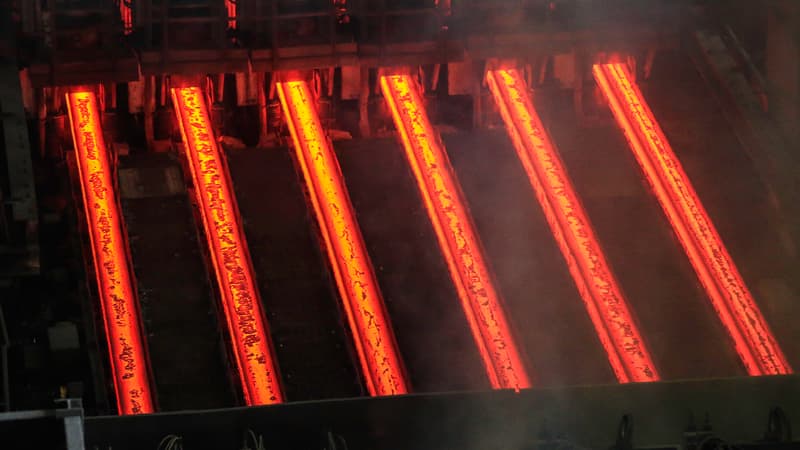Tata Steel’s last blast furnace in the United Kingdom will stop operating on Monday at the country’s largest steelworks, in Port Talbot, Wales, a symbolic closure in the country’s steel history, leaving up to 2,800 people on the ground.
“A large number of heavy assets” of this factory “have reached the end of their operational life,” the group explains in a statement.
“Maintaining the current configuration for longer, or investing more in traditional heavy installations, was not viable from an economic or environmental point of view,” he adds.
The closure announced at the beginning of the year of the last Port-Talbot blast furnaces caused a long conflict with the facility’s employees, as Tata Steel had planned up to 2,800 job cuts in a region already weakened by deindustrialization.
2,800 people on the track
The Indian giant, which employs around 8,000 people in the United Kingdom, is ending iron production there, but intends to resume steel production there, with the installation of an electric arc furnace, less polluting than the of coal, by 2027/2028. blast furnaces and requires less labor.
This restructuring covers several other areas of the country up to and including 2025 and should result in an investment of 1.25 billion pounds (1.5 billion euros), of which 500 million promised by the former Conservative government.
The new Labor government, elected in July, expressed its satisfaction at the beginning of the month that it had obtained an improvement in the severance payments offered to employees and the financing of a vocational training programme, without this altering the main conditions of the restructuring .
The gigantic Port-Talbot site, created more than a century ago, employs 4,000 people. During the 1960s, they worked there four more times.
In the northeast of England, in Scunthorpe (northeast), British Steel, the country’s second largest producer and a subsidiary of the Chinese company Jingye, also plans to close its blast furnaces and switch to electric arc furnaces, with an investment of 1.25 billion pounds . . London must inject 300 million.
These would be the last blast furnaces in the country, the end of an era. The country’s third-largest producer, Liberty Steel, has already switched to electric arc furnaces.
Source: BFM TV


